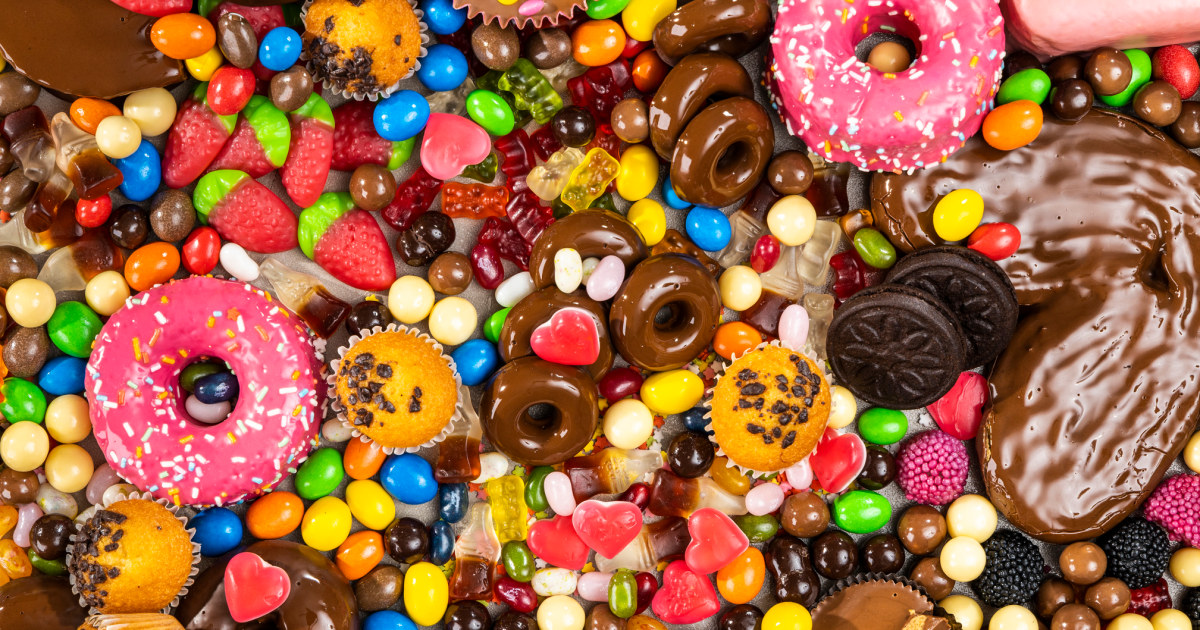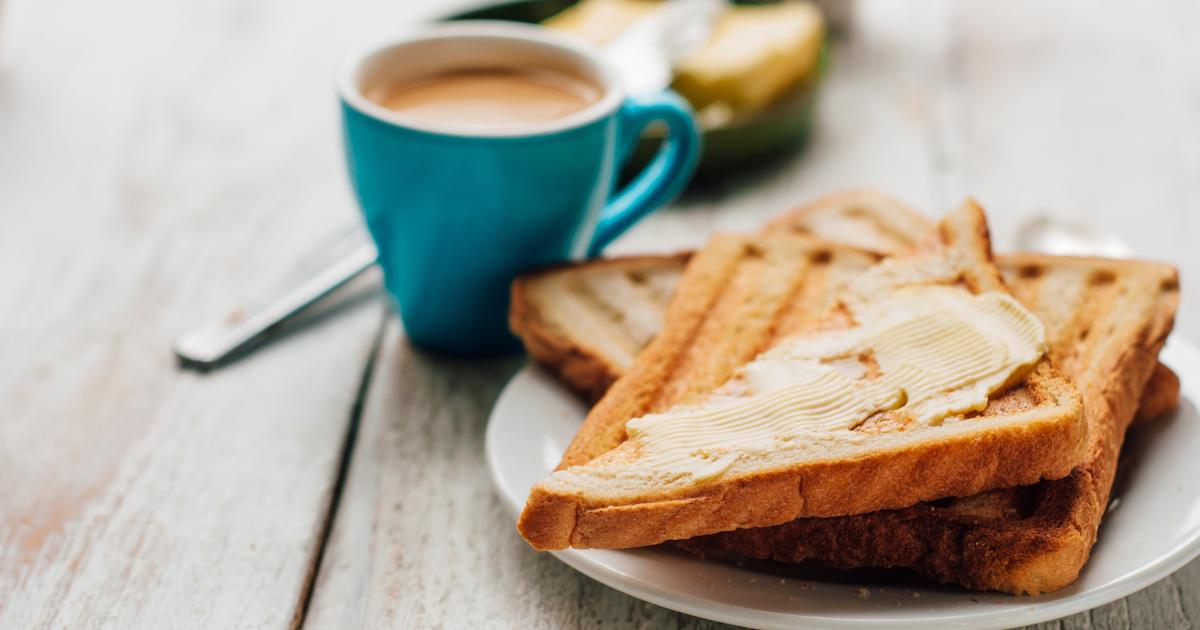By Linda Carroll -
NBC News
Eating too many sweets or salty snacks may sound like something you get out of doing with age, but a sizeable proportion of adults 50 and older say they can't say no to highly processed foods, according to a survey released Monday by the Institute for Health Policy and Innovation at the University of Michigan.
About 1 in 8 adults over the age of 50 showed signs of food addiction, according to the survey.
The researchers analyzed responses from more than 2,000 adults ages 50 to 80 who completed the university's National Survey on Healthy Aging.
More women than men met the criteria for the survey's definition of addiction.
Those who said they were overweight, lonely, or in fair to poor physical or mental health were also more likely than others to meet addiction criteria.
[How Ozempic and Wegovy Work: From Serious Side Effects to Losing 50 Pounds]
The survey focused on highly processed foods—sweets, starchy foods like white bread, salty snacks, fatty foods, and sugary drinks—but participants were also asked to note any foods they had trouble with. in the last 12 months.
Several studies indicate the healthiest times to eat
Oct 6, 202201:13
“The ability of these foods to trigger the major classic signs of addiction is on par with what we see with alcohol and tobacco in this older population,” says Ashley Gearhardt, an associate professor in the department of psychology at the University of Michigan in Ann Arbor.
"We think this is also true in younger populations."
Gearhardt and her team used questions from the Yale Food Addiction Scale to measure whether older adults experienced basic indicators of addiction.
Among the symptoms that people checked most frequently were:
She had such a strong urge to eat certain foods that she couldn't think of anything else (24% said this happened once a week).
They tried to cut down or stop eating certain foods, but couldn't (19% say this happened two to three times a week).
If he had emotional problems from not eating certain foods, he ate them (17%, once a week).
Eating the same amount of food no longer gave me as much pleasure as before (13%, two to three times a week).
My friends and family worried about how much I ate (12%, once a month).
My eating behavior caused me a lot of distress (12%, two to three times a week).
I had major problems in my life because of food and eating (9%, two to three times a week).
Gearhardt was part of the group that devised the Yale Food Addiction Scale.
The scale uses the same criteria that are used to diagnose substance addictions and applies them to highly processed foods.
Gearhardt suspects that ultra-processed foods, high in fat, sugar and salt, take advantage of the brain's reward system, triggering the release of dopamine, the same signaling chemical that makes people feel pleasure when they eat enough, have sex or take certain drugs.
[Autism rates have tripled in the US. Is it more common or has it started to be better diagnosed?]
Another insidious component of these foods, he explains, is that companies strip out fiber and water, making it easy for people to consume large amounts without feeling full.
“When you feel full, there are hormones in the gut that reduce the dopaminergic system,” adds Gearhardt.
"These foods don't seem to signal satiety, so there's no damping of the dopaminergic system."
“People are really conflicted and struggling with their relationship with these highly processed foods.
Many are unaware of how powerful these foods are," Gearhardt said.
This medicine to fight obesity in adults now works in adolescents, according to a study
Nov 3, 202201:51
“The big issue with ultra-processed foods is realizing that once you eat one, you may not be able to stop at one and you need to keep eating more,” said Dr. Vijaya Surampudi, an assistant professor of medicine at the Center for Nutrition. UCLA Human.
“The food industry is really smart,” he said.
Surampudi said he tells his patients to stay away from fast foods and foods loaded with added sugar and instead of white bread, for example, choose products made with whole grains, which will make them feel full.
[New guidelines for treating childhood obesity include drugs and surgery for the first time]
Dr. Evelyn Attia, professor of psychiatry and director of the Center for Eating Disorders at Columbia University Irving Medical Center, said that certain foods likely act on the same brain circuits that make a person feel good when consuming a substance. of abuse.
"It's tricky when we talk about food in a similar way to how we think about substances of abuse. We can't totally abstain from eating," Attia said.
The big problem for some experts is that addiction to food, unlike addiction to gambling and binge eating, does not have an entry in the official guide used by specialists to diagnose mental illness, the DSM-5.
Specialist gives advice to avoid obesity in children
March 7, 202203:58
Although the report highlights the fact that some people find it difficult to control themselves with certain foods, the idea that people can become addicted to food "is somewhat controversial," says David Creel, a psychologist and registered dietitian with the Bariatric and Metabolic Institute of the Cleveland Clinic.
"It's not accepted as a diagnosis at this time," he noted.
Creel sees a big difference between a person's inability to stop eating Oreos and not being able to resist the pull of illicit drugs.
Still, he points out that the inability to control the consumption of certain foods is on a continuum that has drug addiction at one extreme.
[USA. will no longer consider COVID-19 a national emergency. What will happen to free vaccines and tests]
According to Colleen Schreyer, associate professor of psychiatry and behavioral sciences at Johns Hopkins University School of Medicine, food addiction "is considered more of a theory than an established science."
Still, Schreyer says: “I think there are great parallels between addictive disorders and cravings and eating disorders.
The difference is that you cannot stop eating”.
Gearhardt said the survey results should encourage healthcare professionals to ask patients about their eating habits.
Attia agreed.
“They should ask people what they have eaten that day and the night before, whether they snack or skip meals,” she said.
[What to eat after intermittent fasting? An expert gives you his best advice]
Schreyer said that cognitive-behavioral therapy can help patients cope with temptations, otherwise "food will always have power over you."
“We work with people to establish normal eating habits so they are not in an intense state of hunger,” he said.
“And it's not the end of the world if you end up eating eight Oreos.
That's a win over 45 Oreos,” he added.







